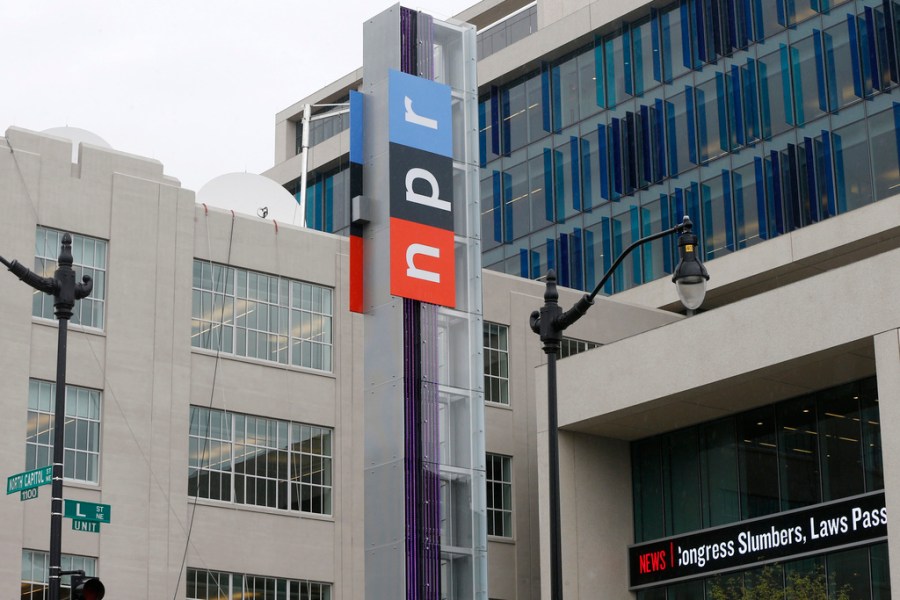
If the pledges of Elon Musk and Vivek Ramaswamy are to be believed, the incoming Trump administration will make defunding public broadcasting a priority. The Department of Government Efficiency leaders have specifically targeted the Corporation for Public Broadcasting, which directs federal funds to National Public Radio and public television. Their view is in line with that of conservatives generally, who have come to see public media as a progressive bastion.
Tom Rosenstiel, director of the Pew Research Center’s Project for Excellence in Journalism, has said, “NPR and PBS have among the bigger partisan gaps in believability.” Only 16 percent of Republicans, the Pew project has found, say they believe what they hear on NPR.
Such findings notwithstanding, defunding is no sure thing. The first Trump administration proposed zeroing out the Corporation for Public Broadcasting (which receives $535 million in federal funds) four times and failed each time. No small number of Republicans like their hometown public broadcasting stations — some of which are key sources of local news — and voted accordingly.
It will not be conservative public opinion but the votes of members of the Labor-HHS Appropriations Subcommittee which will be a key decider of funding’s fate. Its Republican members include Michigan Rep. John Moolenaar, a member of the party’s moderate Main Street Caucus.
But even if NPR and PBS survive the latest defunding proposal, that does not mean they should continue to operate as they have been. NPR especially must seek to understand the reasons it is regularly targeted. It should start by reflecting on its name — which includes “national.” It is in its mandate to serve a broad geographic and cultural cross section of America where NPR, with some 21 million weekly newscast listeners, is falling short. The ten highest-rated NPR stations are, with the exception of Anchorage, all in university towns or politically “blue” cities, such as Austin.
Average listener household income is more than $115,000 — a plus for gaining advertisers (aka “funders”). NPR stations with the most significant news operations are found in similar locations — including Boston, New York, Los Angeles, Chicago and San Francisco. It’s worth noting that, even in these cities, public radio listenership has been in decline. There are some local NPR news operations south of the Mason-Dixon line (Nashville, Atlanta and Charlotte) but they have smaller audiences.
These are problems which can be fixed — but doing so will require rethinking what stories are actually included on “All Things Considered” and “Morning Edition.” To reach a wider swathe of America, these flagship programs should regularly include important stories produced not in Washington but by stations across the country.
When listeners say they “mistrust” NPR, they may actually mean that they are disaffected by story selection. A persistent focus on climate change, abortion and transgender rights may seem disproportionate to many in more centrist and conservative regions, where stories about the charitable endeavors of megachurches or efforts to keep teenagers from pornographic websites might be of interest or concern.
To reach a wider audience — to be truly national, in other words — NPR, and the “PBS NewsHour,” as well, should look to the network of more than 1,000 public radio stations. These can be sources from which news — defined as both important and surprising — can bubble up. With so many listening posts across the country, NPR should have learned first of the opioid overdose or subprime mortgage crises.
One can imagine a nightly feature that might be dubbed “The Big Story in Boise,” or Birmingham, or Baton Rouge. These should not be local stories that illustrate already well-trod national themes but developments that reflect regional concerns and disputes. Inevitably, they will include voices that are politically and culturally disparate.
Public media, in other words, should seek geographic diversity — as a way to win back listeners and viewers and defuse the controversy which perennially dogs it. Indeed, this would be the right time to revise the Public Broadcasting Act of 1967 to require regularly reporting to Congress on public media audiences in specific cities and states across the country.
Public broadcasting must not succumb to the temptation of defending its current fares — such as children’s television — as proof that it deserves unquestioned ongoing funding. Instead, it needs to acknowledge, for instance, that the “N” in “NPR” now stands for “niche,” as in niche audience. That’s a long way from the authorizing language of the Public Broadcasting Act, signed by Lyndon Johnson, which includes the goal to “encourage public telecommunications services which will be responsive to the interests of people both in particular localities and throughout the United States.” It’s a goal that has proven elusive but still must be sought.
If public media can’t serve the American public at large, it deserves to lose its funding.
Howard Husock, a Senior Fellow at the American Enterprise Institute, is a former member of the Board of Directors of the Corporation for Public Broadcasting.












